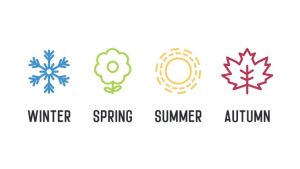Arts and Culture of the North: Heritage Preservation and Employment Opportunities
 Publié le 1 February 2012
Publié le 1 February 2012
Canada’s North: a land of ice and snow that is fertile with culture, art and opportunity. The northern territories represent a huge portion of the country’s landmass, yet are home to very little of its population. Even so, the art and culture of the North has come to represent Canada in many ways, with such Aboriginal icons as Inukshuks and Inuit carvings admired from coast to coast and around the world. Thus it’s an exciting place to be for anyone interested in a career in arts and culture.
And the northern arts and culture industry is booming, says Patti Balsillie, a tourism product developer, facilitator and management consultant as well as a board member at Yukon College. She originally moved to Yukon from Nova Scotia in 1989 for a summer job, but she got hooked and moved back there permanently after university.
Both performing and visual artists are doing great business, selling and promoting their art throughout Canada and around the world. “All of these energies have heightened the awareness about the North, about culture, and about opportunity,” says Balsillie.
Because of the higher profile of Aboriginal art, people are coming to the North knowing more about the culture and the artists they might meet. “Tourists are looking for a more hands-on, traditional experience,” she says. As a result, Aboriginal-related tourism is in high demand.
Other tourism sectors are also doing well, Balsillie says. Yukon gets a lot of traffic from cruise ships that offer land-based adventures for their guests. The territory also sees many RV travellers passing through Yukon to get to Alaska; Canadians who are interested in discovering what their country is like north of 60 degrees; and overseas visitors from such countries as Germany, France, the U.K. and Australia.
All these factors are in play when it comes to job opportunities in arts, culture and tourism in the North.
In the arts and culture sector, jobs will mainly be in guest services, hosting and greeting, marketing and event planning. It is also possible to work for a specific tourism destination organization focused on arts and culture or indigenous culture experiences, Balsillie says. Also on the tourism side, there are jobs to be had in wilderness guiding, retail, food and beverage service, and accommodations.
Balsillie says that in order to have a career in arts, culture and tourism in the North, it is important to come with an interest in northern culture and some understanding of the diversity within the three territories. Having a background in interpretation or event planning is also an asset, as well as some expertise on the region’s First Nations, geography or environment.
Balsillie says tourism programs around the country offer an interpretive component as part of their curricula. “This allows students who are future employees to go through a set standard of how you interpret an experience, tell a story or share a fact with a visitor that makes sense, is logical, and allows for interaction,” she says.
The breadth of training available reflects the numerous career opportunities available in tourism in the North, Balsillie says. For example, Yukon College houses the School of Management, Tourism and Hospitality, which offers programs in Business Administration, Culinary Arts, First Nations Governance and Public Affairs, and Food and Beverage Operations, among others.
Aurora College, which has three campuses (Fort Smith, Yellowknife and Inuvik) and Community Learning Centres all over the Northwest Territories, offers the Aboriginal Language and Cultural Instructor program. Doug Robertson, campus director at the Inuvik campus, says the program is a two-year diploma designed primarily to train Aboriginal language and culture instructors to work in the primary and secondary school system. However, other opportunities in tourism as well as in specific Aboriginal centres are also open to graduates.
Robertson says that it’s typically northern residents who enroll, but the program is open to students from other provinces who wish to learn more about Aboriginal language and culture.
As well, the federal government funds a number of sector councils to promote skills development and help new workers gain access to solid careers. One such council is the Canadian Tourism Human Resource Council, which runs Tourism Education Councils (TECs) across Canada. These TECs can supply the coursework for EMERIT, a professional training certification program that is of value to anyone seeking a career in tourism.
Balsillie says another option for students looking for jobs in the arts, culture and tourism sector is to check out the Work Info Net (WIN) for the territory they are interested in. Yukon’s WIN is called YUWIN and it lists job openings, helps with resumé building and offers career development support.
The North also has many opportunities for students looking for summer employment, Balsillie says. “In my opinion, coming to the North for your tourism experience adds a lot of value. It shows you as an adventurer and someone who isn’t afraid to relocate,” she says.
Finally, Balsillie reiterates that the region has a lot to offer to people interested in arts and culture who want a taste of life north of 60 degrees—those who are interested in new experiences and adventures. If this sounds like you, investigate working in the North today. CO
By Hilary Thomson
HILARY THOMSON is a journalism student at Carleton University.
FOR MORE INFORMATION, VISIT:
auroracollege.nt.ca, tiayukon.com, yukoncollege.yk.ca, careeroptionsmagazine.com







